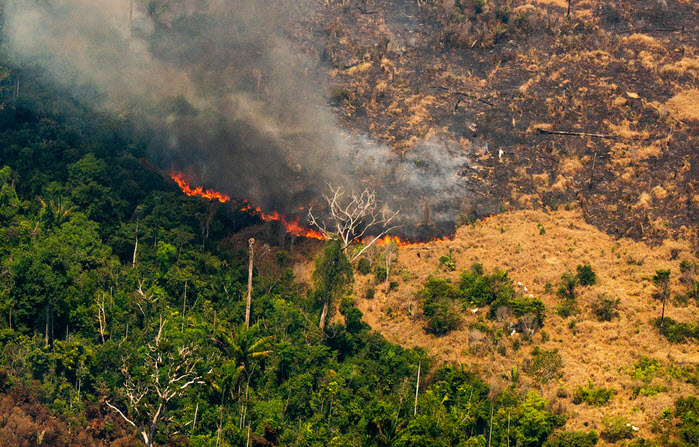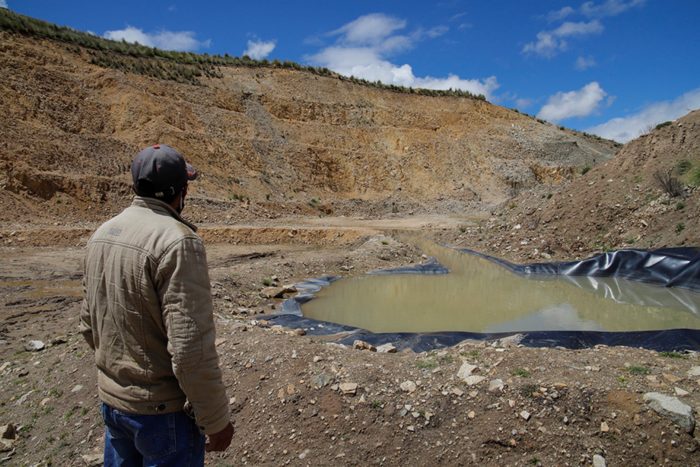
This month we are excited to welcome four new partners: Open Americas, Reclama, Latin American Foundation for the Future (LAFF) and Unión Verapacense de Organizaciones Campesinas (UVOC), and look forward to fruitful relationships with them.
In August, LAB was fortunate to have had a productive meeting with Tom Northey of Con Brio. He is helping us to secure funding to keep LAB’s important work going next year. If you’d like to support our work please donate here or subscribe to our Patreon.
New funding is increasingly urgent. At the end of November, if no new funding can be found, we will lose our three wonderfully talented and creative part-time staff: Rebecca, Emily and Poppy.
News from the region
Haiti
On August 14 a fatal earthquake, measuring 7.2 on the Richter Scale, struck Haiti’s southern peninsula. Reports suggest at least 700 people have died and thousands suffered horrific injuries. Civil society and grassroots organisations in Haiti are best placed to respond to this crisis. LAB friend, The Haiti Support Group, has put together a useful list of suitable local organisations to support and donate to.
Brazil
Following on from Malcolm Boorer’s first article on the Nikkei, the Japanese community living in Brazil, he explores what motivated those who returned to Japan (the Dekasegi).
Amy Hancock reviews Anna Muylaert’s Alvorada Palace which follows Dilma Rousseff, known by her fans as the ‘Warrior of the Brazilian homeland’. The film offers an insight into the life of Brazil’s first female president leading up to her impeachment on 31 August 2016.
Brazil’s current president is stoking the metaphorical fires as the literal fires continue to rage up and down Brazil, engulfing huge areas of the Amazon rainforest, indigenous reserves and city hills. Jan Rocha investigates how Bolsonaro’s attempts to sow chaos are generating political instability and, in turn, contributing to the economic malaise. Whilst Bolsonaro’s hopes of winning the 2022 election appear to be fading fast, Lula’s popularity soars with the polls indicating he will easily beat Bolsonaro.
It was feared that Bolsonaro supporters would create mayhem on September 7, Brazil’s Independence Day. The President’s decreasing but vocal band of diehard supporters across the country had vowed to stage huge demonstrations, egged on by the man himself, while insinuating that they might resort to violence, attack the Supreme Court or occupy federal buildings — all in an echo of the invasion of the US Capitol by Trump fanatics. In the event, however, the day passed off fairly peacefully with large, but not overwhelming assemblies, and the opposition mainly staying away and avoiding confrontation.
In an interesting video, Glenn Greenwald talks about what happened on that day, the implications for the future, and warns the progressive left not to exaggerate the dangers. He is also critical of one of the Supreme Court judges for arresting Bolsonaro allies, including a Congressman, without showing due cause.
Meanwhile, investors including U.S. pension funds and an Argentine agribusiness giant may be linked to illegal land deals and deforestation in Brazil’s Cerrado region. The probe identifies a common practice of using shell companies and other legal subterfuges to skirt the restrictions.
Increased levels of deforestation and the suppression of vegetation are just some of the impacts that Brazil’s Grain Railway will cause – suggest Indigenous leaders and environmental NGOs. The controversial 933 km-long line is planned to run through the Amazon rainforest but critics dispute the idea that the railway will be ecologically sustainable. Munduruku leader Alessandra says: ‘They are squeezing us more all the time. Where I live, we now have to go a long way to be able to fish’.
Indigenous advocates and their allies are also criticising the ’30 by 30′ plan: to conserve 30% of Earth’s land and sea areas by 2030 through ‘area-based conservation measures’. Its critics highlight that if implemented poorly, the plan could result in mass evictions and replicate colonial legacies of Indigenous dispossession. The plan brings to light fault lines in the modern conservation movement, which has been dominated and created by conservation organisations in the Global North.
Mexico
In the second article about the CAMeNA history archive in Mexico, Cornelia Gräbner focuses on the life and work of the archive’s founders, Argentinian writer Gregorio Selser and his partner Marta Ventura. Together, Selser and Ventura assembled a large archive, which covers all aspects of the ‘causes of liberty and justice in Our America’, and probes the ‘manoeuvres and lies of its local and foreign oppressors’. This archive became the core holding of what would become CAMeNA.
The Heart of Our Earth and Mining
Land degradation is one of the world’s most pressing environmental problems, with about a quarter of the world’s total land area already degraded. Yet an innovative, new method of planting mesquite and agave, developed in Mexico by a university-educated, small-scale peasant farmer, offers hope and could be applied to global degraded lands. Sue Branford reports on this new initiative.

Peru
In the latest post in LAB’s London Mining Network blog, Kinga Harasim reports on heavy metal pollution from mines. In Espinar, Peru Amnesty International and Human Rights Without Borders have been researching the effects of toxic metal pollution. A survey of 11 communities, all close to the Antapaccay project, an Anglo-Swiss Glencore mine, shows that 78 percent of participants have elevated levels of toxic substances in their bodies.
Chile
Meanwhile in Chile, at the end of January, communities of Colina and the Investiga Colina NGO reported the presence of a ‘strange foam’ in the Colina River. The river may have been contaminated with tailings from mines operated by Anglo American. Yet Anglo American published a statement the day after the allegations claiming that they are not responsible.
The lithium operation on the Chilean salt plains has resulted in ecosystem degradation, landscape damage and forced migration precipitated by water scarcity. Given the impacts of lithium extraction in Chile and other regions, Tom Scott explores whether large-scale lithium extraction in Cornwall is quite as desirable as Boris Johnson thinks.
Annabelle Dawson interviews Thea Riofrancos, author of Resource Radicals, about energy resource extraction in Latin America. Riofrancos highlights that whilst there is a pressing need for new energy systems, especially in the Global North, this rush runs a risk of reproducing inequalities and environmental damage. The UK can learn from Latin American anti-extractive and anti-mining movements which are increasingly part of transnational networks that span world regions where there’s potentially a new mining boom related to energy transitions.
Women Resisting Violence
With the podcast interviews recorded, we’re now looking for bilingual English and Guatemalan Spanish speakers and bilingual Latin American Spanish and Portuguese speakers as voice actors to dub the episodes into English, Spanish and Portuguese. For more information about the requirements get in touch with wrv@lab.org.uk.
Ecuador
Between 2009 and 2019, 120 women and girls, 20 companions and eight health providers were prosecuted for seeking or facilitating an abortion in Ecuador. A Human Rights Watch report concludes that Ecuador’s criminalisation of abortion disproportionately affects Black and Indigenous people. The Ecuadorian Constitutional Court’s decision to decriminalise abortion in cases of rape in April this year, offers some hope. Yet Rosie Thornton highlights that any progress will need to account for factors affecting those of diverse abilities and sexualities, Indigenous and Afro-Ecuadorian groups and those with compromised geographical or economic access to healthcare.

Argentina
Argentina is also witnessing the significant impact of the pandemic on violence against women and girls; domestic abuse and femicide has soared during the lockdowns. Matt Dunnett reviews Paula Hernández’s intimate family drama, The Sleepwalkers– Argentina’s official contender for the 2021 Academy Awards, which depicts rising tensions within a middle-class Argentine family during a summer vacation. Matt Dunnett notes the film offers a social commentary of few words on the silence around sexual assault within still patriarchal family dynamics.
Events
On 25 September LAB is hosting the fourth and final event in the Voices series A Celebration of Cultural Resistance. In the webinar we’ll hear from cultural activists from the front lines of their communities, including Solvay Caceres Cabarcas (community organiser, Colombia) and INKA (Dominican singer, rapper), to discuss Latin America’s developments from the past few years and how social activists have adapted to these new challenges. You can book your place here. For enquiries, please contact emily.gregg@lab.org.uk
Following a Covid-required hiatus in 2020, CASA Festival returns in September with an exhibition, installations, performances, films, an open mic and a party in Brixton. You can read more about LAB’s top picks from the CASA 2021 programme here.
La Población, one of Victor Jara’s final albums, tells the stories of poor people living in a shanty town in Santiago, and provides an iconic musical testimony of their struggle for casa digna (decent housing). On 18 September the Victor Jara festival El Sueño Existe (the Dreams Lives On) will celebrate Jara’s album La Población with a zoom event. To attend, email suenoexiste19@gmail.com
Documentary film El Father Como Sí Mismo follows Venezuelan director, Jorge Thielen Armand, as he makes his second feature film about his father’s time in the Amazon in the 1990s, working in illegal gold mining and drinking heavily. The film is showing in London, Glasgow and Manchester this month (live and virtual viewings available). You can use the code ELFATHER-AMIGOS for an exclusive discount.
Become a LAB patron
To support LAB’s work and access more exciting content you can do so through our Patreon scheme.
- For just £3.50 a month you will receive, in addition to the newsletter, two free LAB e-books per year.
- For £8.50 per month you will become a Friend of LAB and receive a LAB paperback per year plus a personal acknowledgement printed in every new LAB book.
- Both types of paid subscriber will receive LAB’s Voz Quarterly Dispatch, each with a long-read article by a special correspondent.
To access all of this please consider becoming a LAB Patreon subscriber. We hope that every one of our subscribers will consider this. It is vital if LAB is to continue its work.

